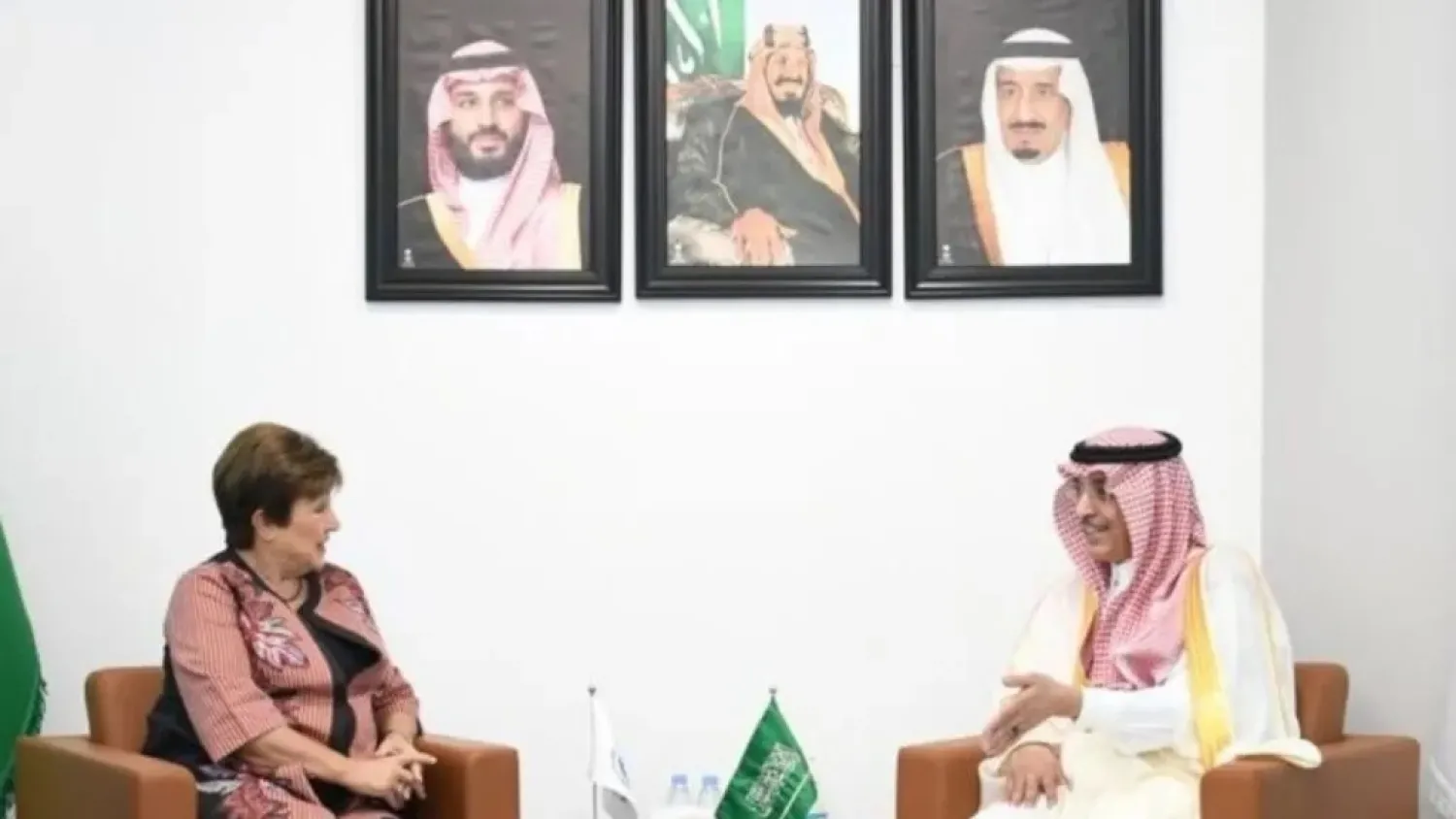Saudi Minister of Finance Mohammed Al-Jadaan underlined his country’s support to the efforts of the International Monetary Fund (IMF) to mitigate the impact of the global food crisis.
During a meeting with IMF Managing Director Kristalina Georgieva, Al-Jadaan discussed areas of bilateral cooperation, including capacity development and the establishment of a regional office in Riyadh.
According to Georgieva, talks reviewed the strong economic performance of Saudi Arabia and its basic support for the region, in addition to joint collaboration to address global challenges such as energy and food security.
The Ministry of Finance is scheduled to hold a press conference on Monday to sign a memorandum of understanding on the establishment of a regional office for the IMF in Saudi Arabia - a step that reflects Riyadh’s position as one of the largest economies in the region and the G20.
Meanwhile, the Saudi non-oil economy registered a growth of 5.4% during the second quarter of 2022, amid expectations of record growth rates throughout the year.
The Ministry of Finance disclosed estimates of its budgets until 2025, showing positive trends and expectations of sustainable financial surpluses during the medium term.
The preliminary statement of the state’s general budget for the fiscal year 2023 expected total expenditures to reach about 1.11 billion riyals ($296 billion), and total revenues about 1.12 billion riyals ($298 billion), to achieve surpluses of around 9 billion riyals, representing 0.2 percent of GDP.
Saudi Arabia is planning to reach an estimated billion increase in the budget for the current year 2022, exceeding 90 billion riyals ($24 billion), thus recording the first actual budget surplus in nearly a decade.
The Ministry of Finance justified its positive estimates for the coming years by citing continuous work to raise the efficiency and effectiveness of spending and financial control and the implementation of economic and financial reforms within Vision 2030, as well as promoting the growth of local investment by building partnerships with the private sector.
Separately, SAMA’s monthly bulletin said that loans granted by banks to government institutions and the private sector in the Kingdom increased by 15% to reach 2.3 billion riyals ($629 million) at the end of August, compared to about 2 billion riyals ($546.4 million) during the same period in 2021.









